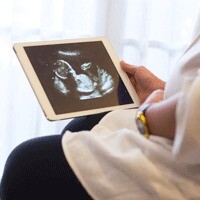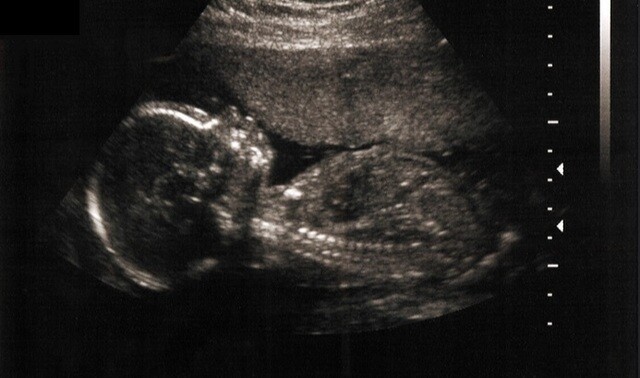With legislation and debates surrounding abortion making headlines from New York to Utah to California, this politically and emotionally charged topic has been thrust again in the public spotlight.
TheChurch has made its stance on abortion clear: "Human life is a sacred gift from God. Elective abortion for personal or social convenience is contrary to the will and the commandments of God."
However, the Church and its leaders explain that "some exceptional circumstances may justify an abortion, such as when pregnancy is the result of incest or rape, when the life or health of the mother is judged by competent medical authority to be in serious jeopardy, or when the fetus is known by competent medical authority to have severe defects that will not allow the baby to survive beyond birth. But even these circumstances do not automatically justify an abortion. Those who face such circumstances should consider abortion only after consulting with their local Church leaders and receiving a confirmation through earnest prayer."
Heading a Prophet's Teachings
In Teachings of Russell M. Nelson, our prophet's conviction and teachings on the topic of abortion have been compiled into one source. Here are a few of his powerful statements:
"A heavy toll on life is included among the evils of war. Data from all nations are appalling. . . . Regrettable as is the loss of loved ones from war, these figures are dwarfed by the toll of a new war that annually claims more casualties than the total number of fatalities from all the wars of this nation. "It is a war on the defenseless—and the voiceless. It is a war on the unborn. This war, labeled 'abortion,' is of epidemic proportion and is waged globally. "Yet society professes reverence for human life. We weep for those who die, pray and work for those whose lives are in jeopardy. For years I have labored with other doctors here and abroad, struggling to prolong life. It is impossible to describe the grief a physician feels when the life of a patient is lost. Can anyone imagine how we feel when life is destroyed at its roots, as though it were a thing of naught? "What sense of inconsistency can allow people to grieve for their dead, yet be calloused to this baleful war being waged on life at the time of its silent development? What logic would encourage efforts to preserve the life of a critically ill twelve-week-old infant, but countenance the termination of another life twelve weeks after inception? More attention is seemingly focused on the fate of a life at some penitentiary’s death row than on the millions totally deprived of life’s opportunity through such odious carnage before birth . . . "[One] contention raised [regarding abortion] is that a woman is free to choose what she does with her own body. To a certain extent this is true for all of us. We are free to think. We are free to plan. And then we are free to do. But once an action has been taken, we are never free from its consequences. Those considering abortion have already exercised certain choices. . . . "The woman’s choice for her own body does not validate choice for the body of another. The expression 'terminate the pregnancy' applies literally only to the woman. The consequence of terminating the fetus therein involves the body and very life of another. These two individuals have separate brains, separate hearts, and separate circulatory systems. To pretend that there is no child and no life there is to deny reality."
One Mother's Heartbreaking Experience with Abortion
One Latter-day Saint mother who experienced such circumstances shared her heartbreaking story on Facebook several years ago, when abortion had once again become a charged topic in the media. Alyson Draper bravely began her story, "I had to have a late-term abortion. It was the worst moment [of] my life."
She continued:
"I had one dead twin. The other had severe Spina Bifida, and would only have lived with life support, in great pain, for a few days.
"I lay on the hospital floor, bawling hysterically, for twelve hours, waiting for an ethics committee of the health care corporation to decide my case justified what had to be done. My health was in danger due to the dead fetus. My husband and I consulted our LDS Bishop, who assured me I needed to do what I had to do, that it was even within LDS guidelines to do so. He reminded me I had six kids at home who needed their mother to live.
"The abortion was terrible. It was done very gently, by Caesarean section, leaving the babies in their amniotic sacs. The living baby passed very quickly.
"It was horrific. I think it even affected my dear physician, as he had never had to end a pregnancy before. I developed PTSD for which I had to be treated for years, mostly because of the fact I had to have it at all."
Draper shared her story in order to help those across the country understand that the language we use to speak about abortion can retraumatize those who have undergone severe loss. Because those who face decisions about abortion are often undergoing intense emotional and spiritual distress, we should treat them with compassion and love. The Church's handbook states, "The loss of a child prior to birth is an event requiring emotional and spiritual support for grieving parents." Elder Quentin L. Cook reminded members that decisions about children "should never be judged by outsiders." But he also recognized:
"We are so numbed and intimidated by the immensity of the practice of abortion that many of us have pushed it to the back of our minds and try to keep it out of our consciousness. Clearly the adversary is attacking the value of children on many levels. We must be at the forefront of changing hearts and minds on the importance of children."
In 1985, President Russell M. Nelson outlined that abortions resulting from rape or complications that could be life-threatening make up a minority of abortions:
"Infrequently, instances may occur in which the continuation of pregnancy could be life-threatening to the mother. When deemed by competent medical authorities that the life of one must be terminated in order to save the life of the other, many agree that it is better to spare the mother. But these circumstances are rare, particularly where modern medical care is available. "Another sympathetic concern applies to pregnancies resulting from rape or incest. The tragedy of this despoilment is compounded because, in such relationships, freedom of choice is denied the woman who is innocently involved.
"But less than 3 percent of all abortions are performed for these two reasons (see statement of Dr. Irving Cushner, Hearings on Abortion, Subcommittee on the Constitution of the U.S. Senate Judiciary Committee, 97th Congress, 1st Session, 1981). The other 97 percent are performed for what may be termed 'reasons of convenience' (“Reverence for Life,” Ensign, May 1985).
That percentage has changed within the past three decades, and now it is estimated that less than one percent of abortions are due to rape and less than ten percent are due to health complications for the mother or child (Guttmacher Institute, 2014 survey).
How Christ's Hope and Mercy Covers Aborted Children
While the magnitude of abortion can be heartwrenching to contemplate, the hope offered by the Atonement of our Savior Jesus Christ applies to those who die before birth.
► Related reading: What We Know About the Lives and Spirits of Unborn Children
While outlining Latter-day Saint beliefs about stillborn children, Elder Bruce R. McConkie spoke of the hope of the Resurrection, a hope with applies to children of abortion:
"That masterful document on the origin of man by the First Presidency of the Church (Joseph F. Smith, John Winder, and Anthon H. Lund) appears to bear out the concept that the eternal spirit enters the body prior to a normal birth, and therefore that stillborn children will be resurrected. . . . This interpretation is in harmony with the general knowledge we have of the mercy and justice of that Infinite Being in whose divine economy nothing is ever lost. It would appear that we can look forward with hope and anticipation for the resurrection of stillborn children.
"President Brigham Young taught that 'when the mother feels life come to her infant, it is the spirit entering the body preparatory to the immortal existence'; and President Joseph Fielding Smith gave it as his opinion 'that these little ones will receive a resurrection and then belong to us.'"
For those in the heartbreaking position of contemplating abortion due to rape, incest, or complications that threaten the life of the child or mother, know that our merciful Heavenly Parents will guide you through your decision. And for those who have lost children or who feel overwhelmed by current legislation or media coverage concerning abortion, know that our Heavenly Parents are both just and merciful and that children who are not given the chance of life here on earth still partake of eternal life because of the everlasting and comprehensive Atonement of our Savior.
Lead image from Getty Images




